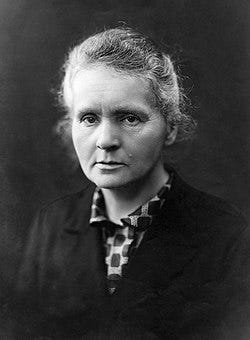Exam Tips & Tricks: Mastering GCSE Science with These Simple Strategies
PLUS FREE Printable Quiz and MORE!
Hey Science Stars! 🧪 Ready to smash your GCSE Science exams? Here are some top tips to help you stay cool and confident when the big day arrives:
Learn the Keywords: Science exam questions love specific terms. Words like “describe,” “explain,” and “compare” each mean different things—make sure you know what they’re asking for!
Formula Practice: Don’t just memorise formulas, practice applying them in different problems. Writing them out by hand several times helps lock them in your memory.
Mind the Command Words: When a question says “state,” it’s looking for a brief fact. “Explain” means you should give reasons and link ideas.
Use Diagrams: When possible, add labelled diagrams in your answers—they show understanding and can fetch extra marks.
Check Your Units: Always include units in your answers! Newton (N), Joule (J), grams (g), etc., getting this right is crucial.
Practice Past Papers: Nothing beats practising actual exam questions. Time yourself and review your answers to spot mistakes.
Don’t Rush: Read every question carefully, underline key info, and plan your answer before writing.
Stay Positive & Rested: A clear mind thinks better. Get plenty of sleep and take short breaks when revising.
Remember, exam success is just as much about exam technique as it is about knowing your science facts. You’ve got this!
Science in the News: How Oxygen Levels on Earth Have Changed Over Billions of Years
Did you know the oxygen you breathe today is the result of a huge transformation that happened millions of years ago? Recent research has shed fresh light on how Earth’s oxygen levels fluctuated dramatically over its history.
Back in the early days, around 2.4 billion years ago, oxygen was barely present in the atmosphere. It was produced by cyanobacteria, tiny ocean critters performing photosynthesis. This led to what’s called the Great Oxygenation Event, when oxygen levels suddenly spiked and changed Earth’s atmosphere forever.
But oxygen wasn’t stable; scientists found it rose and fell several times, influenced by events like volcanic eruptions and massive plant growth. These changes affected life on Earth, driving evolution and diversifying species.
Understanding these ancient oxygen swings helps us learn how our planet became habitable. Plus, it gives clues about how modern-day ecosystems, and even the climate, might respond to changes in oxygen and gases.
Whether it’s past or present, science shows us the Earth is a dynamic place, and there’s always something new to discover!
Famous Scientists & Their Discoveries: Marie Curie, A Pioneer of Radioactivity
Let’s shine a light on Marie Curie, one of the most influential scientists of all time and a true pioneer in understanding radioactivity.
Born in Poland in 1867, Marie Curie was the first woman to win a Nobel Prize, and the only person to win in two different scientific fields (Physics and Chemistry). Alongside her husband Pierre, she discovered two new elements: polonium and radium.
Her work helped reveal that some elements emit invisible rays, which we now call radioactive decay. This discovery not only advanced physics and chemistry but also revolutionised medicine, leading to cancer treatments like radiotherapy.
Marie’s dedication to science was incredible, often working in tough conditions with dangerous materials, but she never stopped pushing boundaries. Her groundbreaking research paved the way for countless innovations.
She reminds us that curiosity, courage, and hard work can change the world, and that science is for everyone.
Join my YouTube Community for more FREE Hacks n Tips:
Plus my FREE Facebook Group:
Drop by my Website:
My TikTok Channel:
All of My Links in one place:
Thanks for reading The Science Guy!
Recommended FREE Reads:












